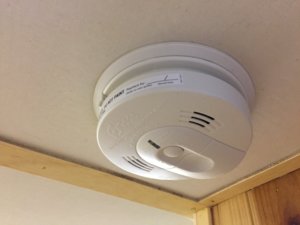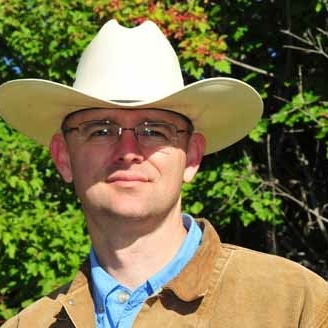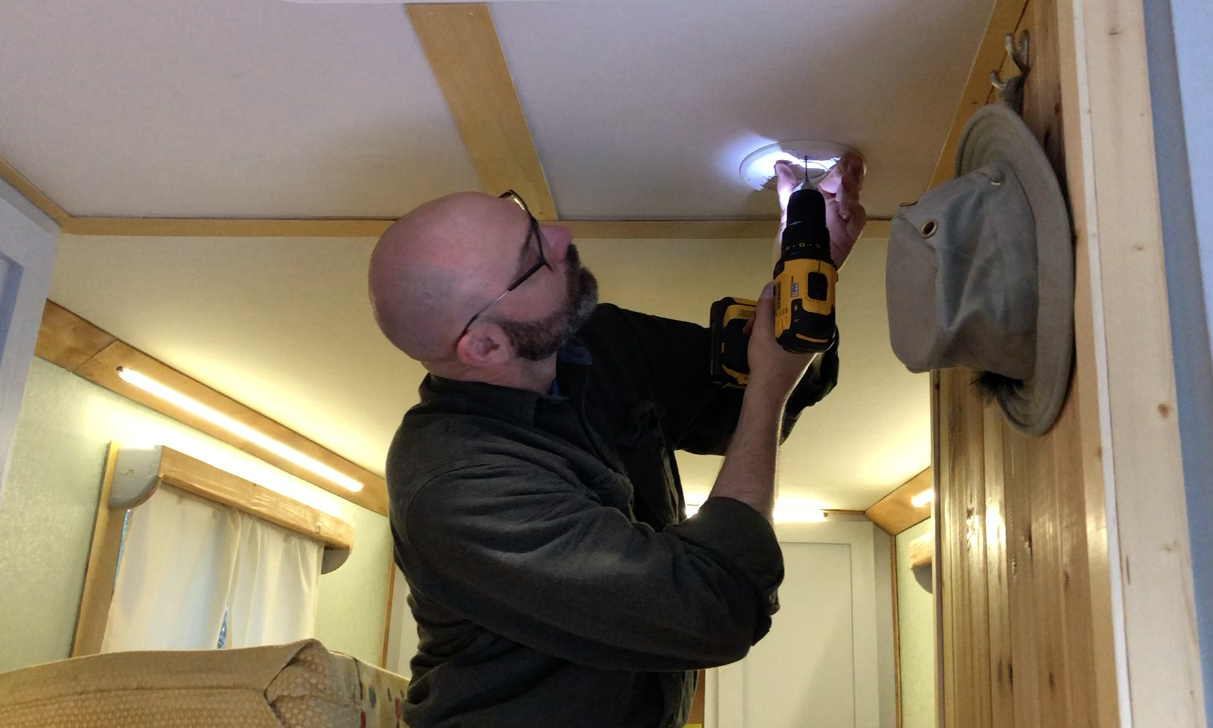Fabulous weather is here, and camping, rodeos, and fairs are on the agenda. All of these activities come with their share of challenges. One often-overlooked hazard associated with camping in a horse trailer or camper is carbon monoxide poisoning.
A few years ago, I built and outfitted my own do-it-yourself living quarters (LQ) horse trailer. At the time, I failed to include one extremely important item that should have been planned from the beginning and installed prior to the first trip: a smoke and carbon monoxide detector. It wasn’t until my enforced downtime during the COVID pandemic that I thought about the matter at all.
Here are some sobering figures:
- 500 people annually die inside of recreational vehicles from carbon monoxide poisoning.
- According to the National Center for Biotechnology Information, from 2010 to 2015 a total of 2,244 deaths resulted from unintentional carbon monoxide poisoning.
- The National Fire Protection Association reported that from 2006 to 2010 municipal fire departments responded to an annual average of 72,000 carbon monoxide incidents, excluding incidents where nothing was found or fire was present.
- Carbon monoxide is the number one cause of poisoning deaths in the United States each year.
As one who uses a propane stove for heat inside my trailer, these stats were rightfully concerning.
Odorless and Colorless
Carbon monoxide (CO) is emitted when fuel, such as natural gas or propane, is burned. It’s odorless, colorless, and virtually impossible to detect without help. When an excess of CO is inhaled, it reduces the blood stream’s ability to hold oxygen. Once the oxygen level is depleted, our body stops functioning properly.
The risks are elevated in confined areas such as LQs and campers without proper ventilation. CO is found in fumes produced by gas ranges, vehicles, portable generators, camp stoves, lanterns, or by burning charcoal and wood. CO from these sources can build up in enclosed or even partially enclosed spaces, silently poisoning people and animals.
At high levels, carbon monoxide can cause death within minutes. The initial symptoms of CO poisoning are similar to a common cold or flu. Anyone exposed to CO emissions, complaining of headaches, dizziness, weakness or excessive sleepiness, nausea, chest pain or general confusion should seek medical help immediately. The key is to respond quickly. Turn off appliances and open doors and windows.
Common Sources of Carbon Monoxide Gas
- Exhaust leaks from a vehicle engine or a generator
- Improper use of portable gas-powered heaters
- Someone else’s vehicle or generator when camping in close quarters
- Malfunctioning or unvented liquid propane gas appliances
Cheap Fix

If your LQ horse trailer or camper doesn’t have a carbon monoxide detector already installed, please purchase a battery-operated smoke and carbon monoxide detector designed for use in RVs. Test the detector every time you use the trailer and replace the batteries every year. (I swap out batteries in the trailer and house when I change clocks for daylight savings time.)
Camping with our horses and mules is carefree by nature, but we should always take the proper precautions for fires and CO poisoning.
As always to find new places to ride and camp with your safe trailer visit the largest guide to horse trails and camps in the world — www.TrailMeister.com.
Published in July 2020 Issue:

Robert Eversole, ”the trail meister,” owns www.TrailMeister.com, the largest database of horse riding and camping areas in the U.S. with free trail and trailhead information, trail maps, and much more to help horse enthusiasts experience the joys of trail riding. Robert is a registered riding instructor with PATH International, a mounted search and rescue team member, and a U.S. Marine who has served on the board of the Backcountry Horsemen of Washington (BCHW). He is enjoying his new career helping fellow trail riders stay found and safe on the trail. When not on the trail, The Trail Meister resides near Spokane, WA and teaches land navigation to a wide variety of outdoor groups across the nation. For North America’s largest horse trail and camping directory, trail tips, and more, visit www.TrailMeister.com.









I should probably install a smoke and carbon monoxide detector in my horse trailer, too. This is a really important detail that we sometimes omit.